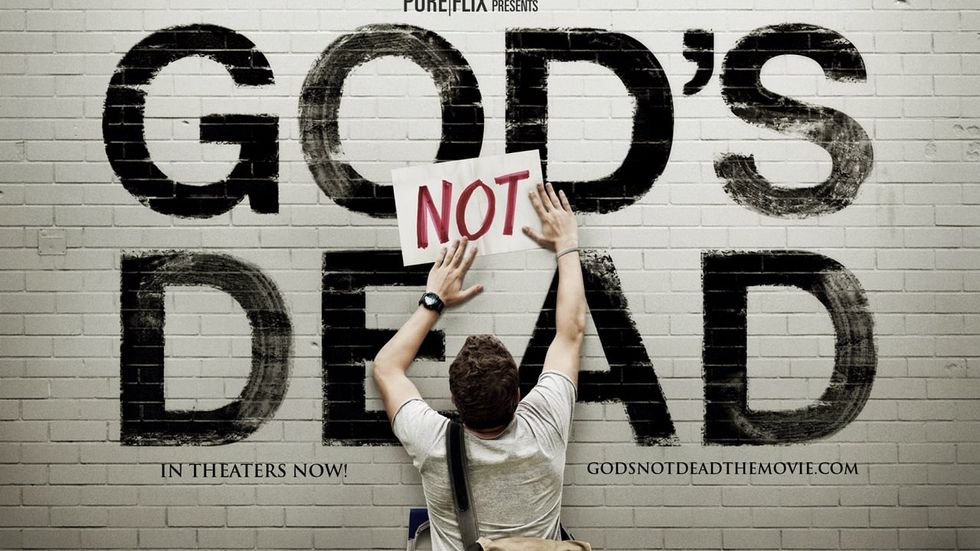Criticizing religious films is a risky thing to do, as you have to be very conscious of what you say and what you pick apart. However, it’s quite evident that religious and Christian films carry a pretty bad reputation in the film industry. People hate to say it, but there have been many times where a movie is announced and is found out to have major religious themes, only to then have people immediately assume that film is going to be bad.
When people think of Christian or religious films, their minds usually turn to films such as God’s Not Dead, War Room, Fireproof, Facing the Giants, and so on, which are the films that give the Christian film industry its bad reputation. What these films do that give them their bad reputation is that they steer away from quality production by solely focusing on getting their message across. The problem with this is that people aren’t going to want to sit through an hour and a half of poor film-making to get the same message they could hear from their pastors on Sunday.
A major standout for these movies is what we see on-screen. The usual complaints about these films often boil down to poor scripts and writing, cheesy acting and dialogue, and unimpressive cinematography. Unfortunately, this seems to be the case for many Christian films, but not all.
A large factor that plays into these complaints has to do with the budget these films are working with. If you look up the budgets for these films, you will rarely see anything higher than five million dollars, along with some films being shot for almost nothing, such as Facing the Giants, which was shot for only $100,000. Even the bigger names in the Christian film industry, such as PureFlix and Alex Kendrick, who have made numerous Christian films, struggle to produce these films with a comfortable budget.
Many, if not all of these films are considered "Indie Films," as major studios, producers, directors, etc. are afraid of touching these types of films for fear of offending their intended audience or hurting their reputation. More often than not, many directors and producers for Christian films have to pull money from their own pockets or plead for investors.
The big complaint that comes from these films is that they pander to their indented audience while disregarding everyone else; they’re made with the intention of being shown only to Christians. This leads to moral and worldly issues that offend or send the wrong message to everyone outside of that intended market. Major issues these films have are stereotyping non-Christians by sending the wrong idea of what people who don’t follow Christianity are like, along with disregarding science and law in order to get their Godly message across, and using God and prayer as means to quickly progress the plot, giving others the wrong idea of what God, prayer, and faith is actually like for Christians.
These complaints don’t plague all Christian films, as it just depends on who is behind the film in question or what the message of the film is. Writer and director Joshua Sheik said it best, stating “I consider myself a Christian filmmaker, not a Christian film maker.” This mentality is what I would like to see more of from those who make Christian films.
I believe films such as Hacksaw Ridge and Chariots of Fire need to be the films that represent the Christian and religious film genre. These films have high production quality, focus on telling a story that many can relate to, all while having religious themes as motivation for certain elements of the story instead of purely trying to push an agenda.


















